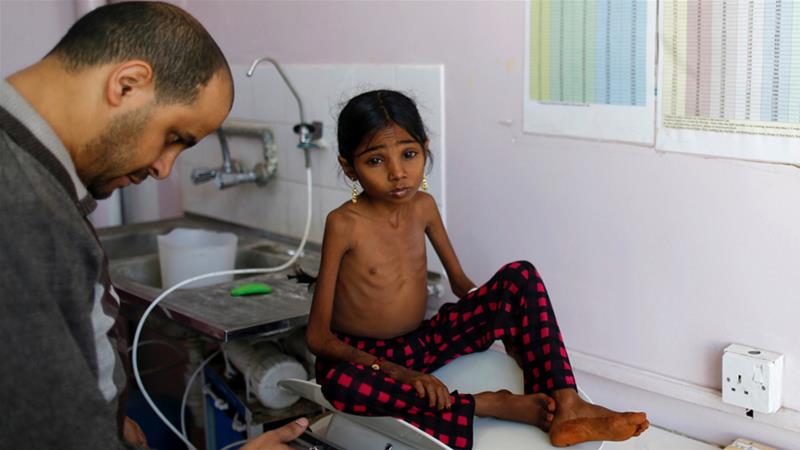Alwaght- United Nations aid chief Mark Lowcock said on Thursday Yemenis are dying from cholera, hunger and other ills because Saudi Arabia and the United Arab Emirates (UAE) are not making good on funding pledges they made earlier this year,
“Those who made the largest pledges – Yemen’s neighbors in the coalition – have so far paid only a modest proportion of what they promised,” UN Emergency Relief Coordinator Mark Lowcock told the UN Security Council.
Riyadh and Abu Dhabi, part of a so-called "coalition" fighting in Yemen, each promised $750 million in aid to the country at a UN fundraising event in February. According to UN figures, Saudi Arabia has so far only paid $121.7 million and the UAE about $195 million of the promised funds.
The initial pledges of humanitarian aid came amid years-long Saudi war on the impoverished country seeking to restore power to Yemen’s Riyadh-allied former officials.
The coalition has, however, been unsuccessful due to the resistance of Yemen's armed forces, led by the Houthi Ansarullah movement.
The Saudi invasion has led to the deaths of tens of thousands of Yemeni civilians. The UN has described Yemen's humanitarian condition as being the "the worst in the world".
"Man-made famine"
Meanwhile, reports have underlined the Saudi kingdom's role in creating a "man-made" humanitarian crisis in Yemen, with some studies revealing Ryadh's deliberate sabotage of the war-torn country’s food infrastructure.
Yemen consequently relies heavily on foreign-supplied humanitarian aid to sustain its impoverished population, with the UN food agency warning that about 15 million Yemenis are in a food crisis.
Earlier this year, UN Secretary-General Antonio Guterres cited a report indicating that over 80,000 Yemeni children under five years had died as a result of severe malnutrition.
A major fall in UN humanitarian funding will further jeopardize the country's vulnerable population.
Speaking on Thursday, Lowcock said that as result of the two coalition countries' underpaid pledges, the UN's humanitarian appeal in Yemen currently had only 34 percent of its planned funding.
The fall in funding comes despite Saudi Arabia and the UAE's heavy investment in foreign arms amid the war in Yemen.
Between 2014 and 2018, Saudi Arabia alone imported more than $15.6 billion worth of arms.
The United States, the United Kingdom, France, Spain and Germany continue to be among the oil-rich kingdom's top arms suppliers despite mounting international opposition to the Saudi war.
On Thursday, the US House of Representatives voted to pass resolutions that block certain arms sales to Saudi Arabia and the UAE.
US President Donald Trump has strongly defended arm sales to the oil-rich kingdom. The president is expected to veto any resolution banning the sales.



























